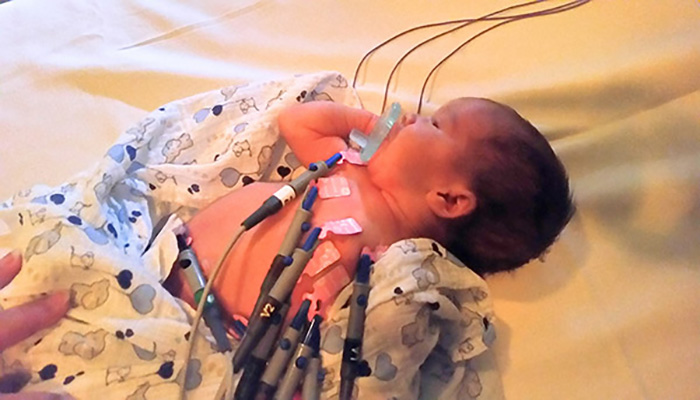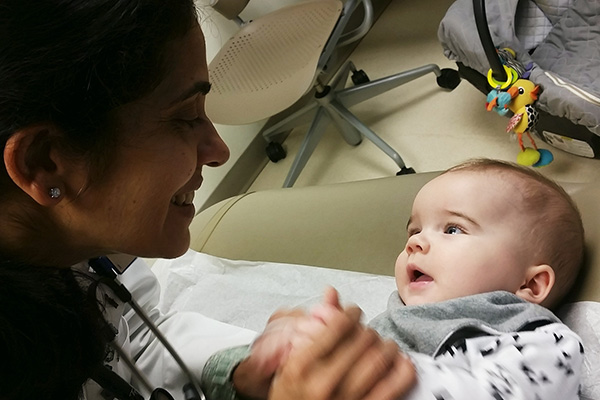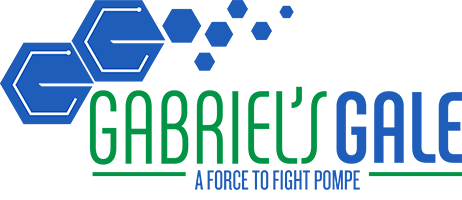WHAT IS POMPE DISEASE:
Pompe Disease is a rare genetic disorder. People with Pompe lack a certain amount of an enzyme (acid alpha-glucosidase or GAA) that breaks down glycogen (a stored form of sugar used for energy.) Not having enough of this enzyme can lead to a buildup of glycogen and, subsequently, damage the muscle. The heart and skeletal muscles are most vulnerable in Pompe patients. There are different forms of Pompe and the severity of the disease and the age of onset varies. Without treatment, Pompe can be deadly.
Early Onset or Infantile Pompe patients hardly have any of the GAA enzyme and may not have any of it at all. It’s usually clear something is amiss in the first months of life. Signs such as feeding problems, poor weight gain, muscle weakness, floppy limbs and head lag will present as well as an enlarged heart. Without treatment, babies with this form of the disease are likely to pass away from heart and/or respiratory issues before they reach the 12 month mark.
Late Onset or Juvenile/Adult Pompe patients have a significant deficiency of the GAA enzyme. Signs of the disease can show up in the first month of life, the first years, when a person is a Senior high school or a Senior in life. There’s really no predicting when the signs will start to show. Those signs are weak muscles and respiratory weakness. Without treatment, respiratory failure can lead to death.
What is Happening at Duke University?
The team at Duke University has and is leading life saving research on Pompe Disease. Dr. Priya Kishnani – the Division Chief of Medical Genetics at the Duke University Medical Center – is the doctor Gabriel sees at Duke. She’s researched Pompe for 25 years – leading a group of doctors over the last 10 to advocate nationally for universal newborn screening. Dr. Kishnani worked with biotech firm Genzyme to lead clinical trials and develop Enzyme Replacement Therapy, which has saved and improved the lives of Pompe patients. The Duke team continues to research Pompe and better the delivery of ERT, manage patient response to it and improve genetic counseling for families.





